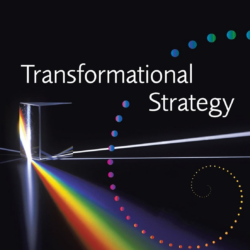Promoting Culturally Respectful Communication
Culturally Respectful Communication
From the workshop on Facilitating Reconciliation between Settlers and Indigenous People at the IAFNAC Conference in Ottawa, May 2018
These ideas came from a group of 20 people, indigenous and settlers, Canadian and American, as well as several other nationalities, all of whom answered the question: What can we do as facilitators to open dialogue and understanding among settlers and indigenous people in order to further reconciliation?
The following are two of seven clusters of answers to this focus question. The first part of each bullet point is the verbatim phrase that participants wrote on cards in answer to the focus question.
I have added a sentence or two of elaboration to each point, to clarify or emphasize the insight. These are my perspective from listening to the group talk about their ideas, and I take responsibility for my interpretations.
Promote Culturally Respectful Communication
- Use the talking stick – A talking stick is an object which is passed around a circle. While one holds the talking stick, they can speak without interruption, while the group listens intently and respectfully.
- Sharing stories – Stories often express deep insight in a way that allows the insight to resonate with those hearing it, and hear the deep message.
- Tell the truth – This means factual truth as well as deep human truth.
- Be open – Allow yourself to listen without judgement, and share without fear of judgement.
- Allow/invite emotions – Emotions are an important part of communication. Indigenous culture does not hide from them.
- Hold space for all feelings and perspectives – This is closely related to being open and allowing emotions. When you do this, you respect the wisdom of the person contributing, and your own perspective broadens.
- Restorative circles – A restorative circle is an opportunity to deeply hear each other and discover empathy for others. Often using a talking stick, people may speak from the heart. The structure allows for those who have experienced pain and those who may have caused it to hear each other. This approach is often used to resolve conflict or to heal relationships caused by injustice.
- Don’t shy away from discomfort – Discomfort with a topic or a word can be a clue to something you need to hear. Pay attention to it and think about why it makes you uncomfortable.
- Give benefit of the doubt – Listen deeply beyond the words to the wisdom that brought a particular comment or perspective to the surface.
- Allow for silence – Many people need time to process thoughts or emotions before speaking. Silence also allows the listener time to process without pressure of responding.
- Story board storytelling – Visual tools such as graphic recording or a Journey Wall allow for the use of visual/spatial intelligence as well as verbal/linguistic intelligence, and are remembered in a different and often potent way.
Consider, Acknowledge, Challenge with Humility
- Access our ignorance – Don’t be afraid not to have answers or knowledge about everything, and ask questions of clarification to understand.
- Cultural humility – There are many ways of operating in the world. Each of us is brought up with certain ways of doing things and thinking about them. Humility means being open to new ways of seeing, knowing, and doing. This can be extraordinarily enriching.
- Seeking permission – It is easy to assume permission to communicate or act on behalf of others. This is a foundation of paternalism. To operate respectfully, ask for permission before speaking or acting on behalf of others, and if you don’t get permission, don’t do it!
- Ditch the triangle – embrace the circle – A central part of an indigenous worldview is the wholeness of the circle. Learning to see the world in its wholeness and connectedness is a big step in bridging cultural understanding.
- Consider indigenous knowledge as parallel knowledge system – Seeing only one way of knowing and explaining the world and judging others as “wrong” or “ignorant” has led to much damage as we encounter each other. When we see parallel knowledge systems, we can incorporate more wisdom into our ways of operating.
- Integrate indigenous culture – There are many ways to do this respectfully, in a way that can enrich us all. Some ways are symbolic, such as acknowledging traditional owners of the land, and others are practical, such as co-designing and facilitating an event as an indigenous/settler team.
- Be holistic: emotions, thinking, beliefs and physicality – The person who wrote this idea referred to the four directions of the medicine wheel as a way of respecting the wholeness of the human being.
- Listen – open mind, hear, will – This is a basis of respect.
- Acknowledge unconscious bias – We all have unconscious biases. They are difficult and often painful to bring to awareness. Being open to having them challenged is a way to open up new respectful behaviour.
- Challenge people’s assumptions/world views that perpetuate racism/oppression – Taking responsibility for helping bring others’ assumptions to light goes beyond changing our own perspectives, and opens the door to broader societal change. This can be gentle (Saying “That’s not my experience.” Or asking “What brought you to that view?”) or strong (“That’s simply not true….”) , as the situation requires.





